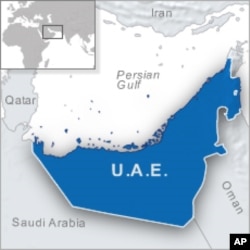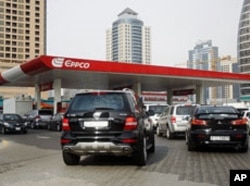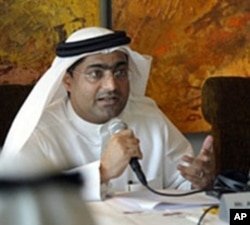As calls for democracy continue to ring throughout the Middle East, the United Arab Emirates has begun preparations to hold its biggest ever election, vowing it is committed to reform. The government recently increased the number of eligible voters for the country’s legislature-the Federal National Council (FNC) to 80,000, up from under 7,000 during the last election.
Earlier this week, Minister of State for Foreign Affairs Anwar Mohammed Gargash confirmed plans to allow more citizens to vote over the coming years until all Emiratis above a certain age are eventually given the right.
"We've always said that the UAE's political program is a continuous program to modernize political participation," he said. "We have said all along that it will be in many, many incremental steps."
Gargash suggested that while plans for reform were in the pipeline before the start of the Arab Spring, regional unrest had prompted the dramatic boost in voter numbers.
Election process
On September 24, the eligible voters will elect half of the 40-member FNC. The rulers of the seven emirates will chose the remaining 20 representatives.
The UAE is the world’s third largest oil-producer and is made up of seven sheikhdoms with Abu Dhabi as its capital.
While the nation has one of the highest per capita incomes in the world, the five northern emirates of Sharjah, Ajman, Umm al-Quwain, Ras al-Khaimah and Fujairah have a noticeably lower standard of living than Dubai and Abu Dhabi.
Power and gas shortages have resulted in rolling blackouts in the north, which also has a history of slow economic development and suffers from relatively high youth unemployment.
With the potential for unrest most likely to come from this area, the government decided in March to invest $1.6 billion in local infrastructure projects.
Increasing the FNC’s electorate is seen as another attempt to appease northern residents.
Critics have played down the significance of the increase, however, saying it is irrelevant unless the body is given more decision-making power. And, the revised electorate still only comprises less than a tenth of the total population.
Significant change?
Christopher Davidson, a Middle East analyst at Durham University, says the move is unlikely to bring about any significant change.
"This is just the latest layer of window dressing that the regime is trying to add to give itself more accountability with its people, but perhaps more importantly, greater accountability in the international community. This is more of the liberalized autocracy model than a genuine democracy that represents the people," he said.
The FNC does not have any real legislative power, but rather provides an advisory function, submitting recommendations that may or may not be implemented. Like all legislative bodies in the Gulf region, ultimate control rests with the ruling families.
Earlier this year, the United States and its NATO allies praised the Emirates for its work in enforcing the U.N.-sanctioned no-fly zone over Libya. But while the nation continues to play a “critical” role in helping pro-democracy rebels in the North African nation, closer to home it has been active in thwarting the democracy movement in neighboring Bahrain.
Davidson says any future public demand for political reform within the UAE’s borders will not be tolerated.
"I think that any opportunity that can be taken to clamp down on genuine presses for democracy [in the UAE] will be taken. We've already seen that with the rather extreme step of arresting a range of political prisoners including academics, bloggers and human rights activists," he said.
While the UAE has been spared the uprisings seen in other parts of the region, 130 prominent members of society signed a petition in March calling for constitutional and parliamentary changes, free elections and a more equitable distribution of the country’s oil wealth.
Five of the signees were later arrested and are currently on trial for posing a threat to national security.
'More controversial' approach
Samer Muscati, a Middle East researcher for the New York-based Human Rights Watch, says the action comes at a time when widespread unrest in the region is making UAE authorities extra weary.
"It's a different tone than what we've seen in the past and I think the UAE is definitely acting in a decisive and a more controversial manner than it has in the past. We hope that the UAE authorities will realize that this approach is incorrect and that they will stop this campaign," he said.
At the first hearing of the five activists earlier this month, dozens of demonstrators gathered to show their support for the government, denouncing the accused as traitors.
It served as a reminder of just how popular the country’s rulers are among most of the population, and how UAE authorities are likely to press on with their distinctly Emirati-style of democracy without much objection.







